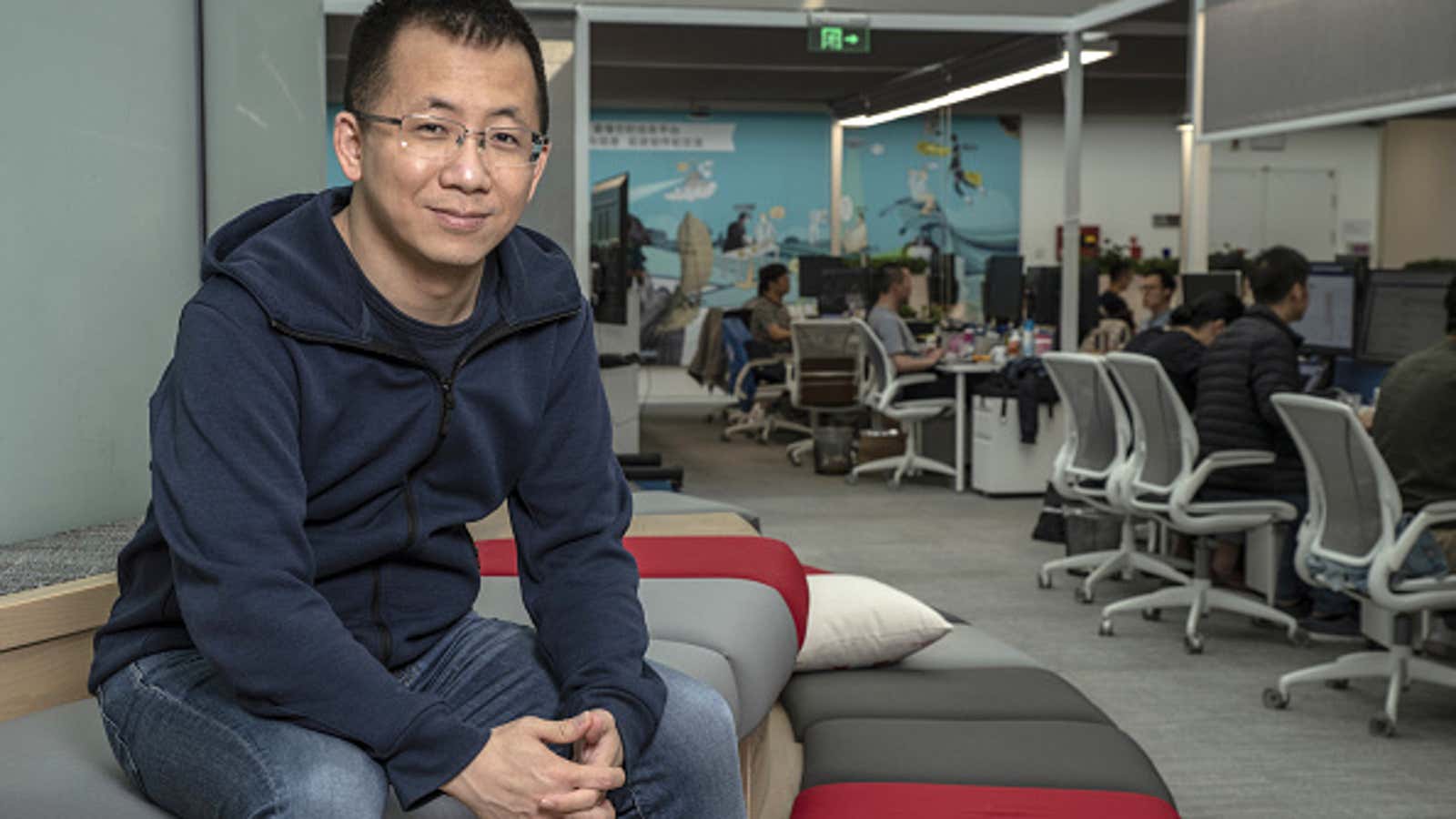Zhang Yiming, the co-founder of ByteDance, will step down at the end of the year as the CEO of the Chinese social media giant behind TikTok’s meteoric rise. Liang Rubo, another co-founder of ByteDance who is currently the head of human resources, will take Zhang’s role.
In an internal letter to employees, Zhang said he came to the conclusion that by quitting the CEO role, with all of its day-to-day responsibilities, he can “have greater impact on longer-term initiatives.” Zhang said he will take a new role at the company to focus on long-term strategy, corporate culture, and social responsibility but stopped short of revealing what title he would assume. Zhang and Liang will work alongside each other for the next six months to make sure the transition goes smoothly, according to the letter.
In response to a query from Quartz, ByteDance didn’t provide further detail on the new role, and reiterated that he would focus on organizational culture and social responsibility “with a more objective perspective on the company” due to stepping away from his CEO position.
Zhang’s resignation marks yet another example of a prominent Chinese tech exec leaving the top job in their prime. Jack Ma, once the face of China tech, stepped down at the age of 51 in 2015 as the CEO of Alibaba, while 41-year-old Colin Huang, the founder of Alibaba’s strong rival Pinduoduo, quit as chairman of the company in March to pursue “research in the food and life sciences.”
While the Chinese tech execs have cited a range of reasons for their surprise moves, including spending more time on philanthropy and “daydreaming” about the next big thing in tech, China’s changing climate for prominent tech titans could be another potential motivation. Since last November, when Beijing shelved Ant Group’s monster IPO, a crackdown focusing on big tech’s monopolistic practices and the sector’s expanding influence has been gaining traction. Alibaba was fined $2.8 billion for its past efforts to push merchants to use their platforms exclusively, while Tencent reportedly also faces an around $1.6 billion fine from the regulator.
Born in 1983, Zhang is relatively low-key and low-profile. After successfully founding a property listing website, Zhang, excited by the advent of smartphones, left the company and founded ByteDance in 2012 from a small apartment in Beijing, looking to create products that offered more personalized recommendations.
ByteDance acquired app Musical.ly in November 2017 for $1 billion, which marked the beginning of TikTok’s global journey. However, due to its ties with ByteDance, former US president Donald Trump designated TikTok a national security threat last year and ordered the app to be divested to a US entity. Oracle, together with Walmart, became a likely contender. At the time Zhang drew rebukes in China for appearing too willing to concede to such a sale, and Chinese authorities moved quickly to put in place new rules to make a transfer of TikTok’s intellectual property to a US firm impossible.
In the wake of Trump’s election defeat, the plan for ByteDance to sell TikTok has been shelved indefinitely, according to the Wall Street Journal.
After weathering the challenge from Trump, TikTok last month was the most downloaded non-gaming app worldwide with 59 million downloads, according to Sensor Tower.
